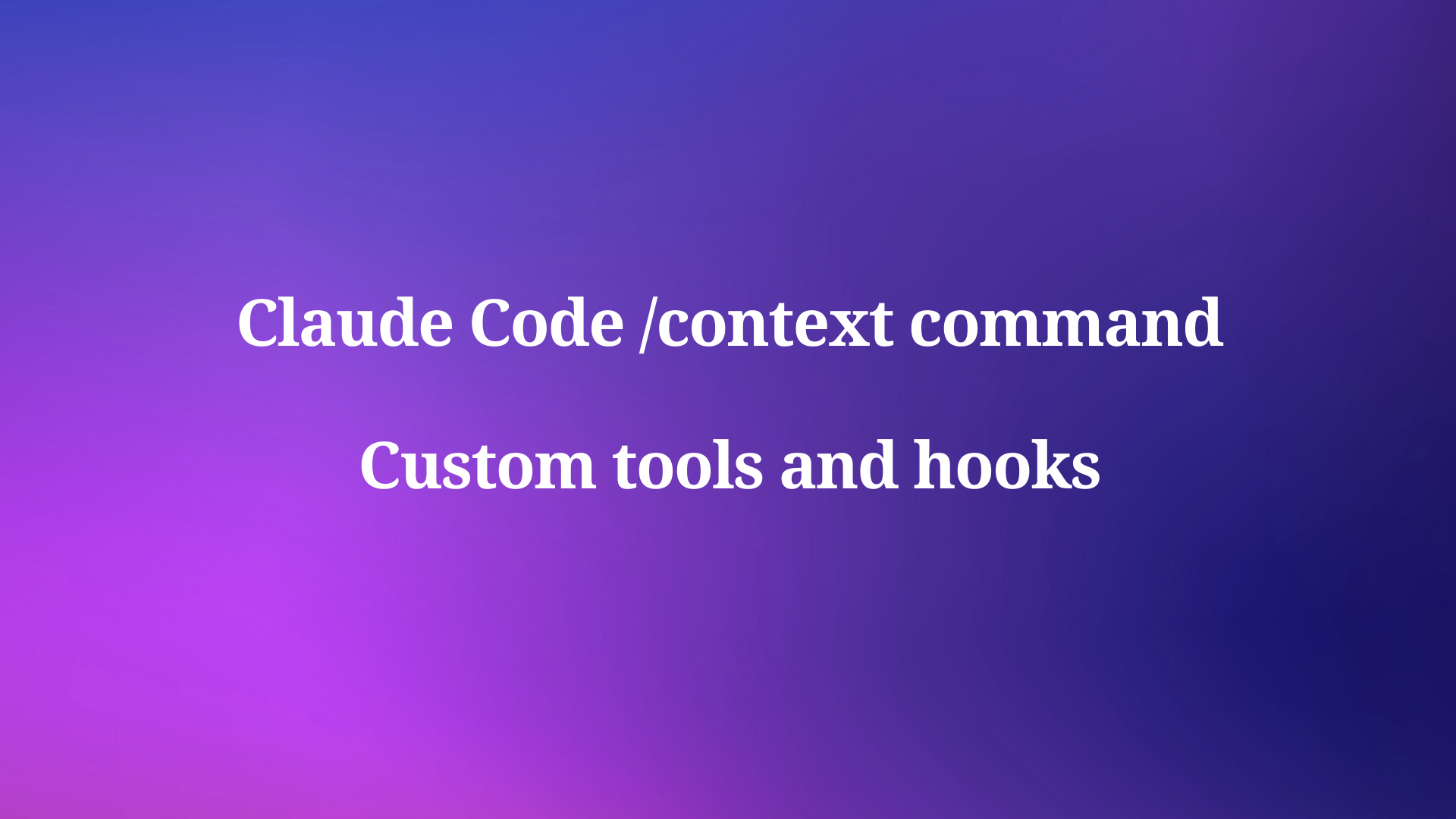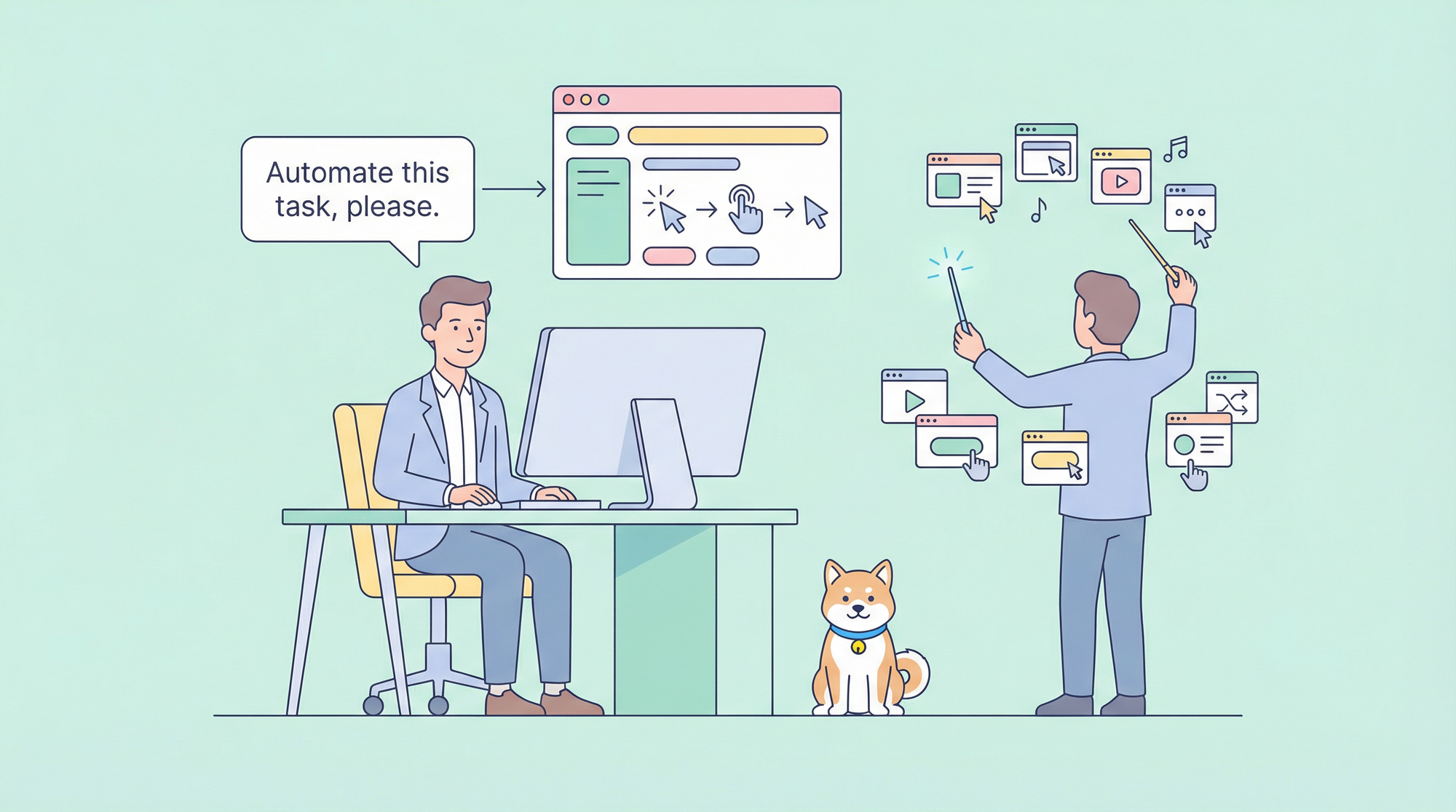Claude Code's /context command represents a breakthrough in how developers can leverage artificial intelligence to build sophisticated custom tools and automate complex workflows. This comprehensive exploration examines the technical implementation and practical applications of custom tools and hooks within the Claude Code SDK framework.
Understanding the Claude Code Context Command Architecture
The Claude code /context command functions as the cornerstone of intelligent context management within the SDK ecosystem. Claude Code is an agentic coding assistant that automatically pulls context into prompts, enabling developers to maintain comprehensive awareness of their entire codebase throughout the development process.

Furthermore, the context command operates by analyzing your project structure, code dependencies, and current working directory to provide Claude with relevant information. This systematic approach eliminates the need for manual context switching, allowing the AI agent to make informed decisions based on complete project understanding.
Additionally, the command integrates seamlessly with various development environments, ensuring that context awareness remains consistent across different IDE configurations and project types. The implementation leverages advanced parsing algorithms to extract meaningful relationships between code components, creating a comprehensive knowledge graph of your project.
Custom Tools Integration with the Claude Code SDK
The Claude Code SDK now supports custom tools and hooks directly in code, representing a significant advancement in AI-powered development capabilities. This integration enables developers to extend Claude's functionality beyond built-in tools, creating specialized solutions tailored to specific project requirements.

Moreover, custom tools within the SDK framework operate through a standardized interface that maintains compatibility with existing Claude Code features. The architecture supports both synchronous and asynchronous tool execution, providing flexibility for various use cases ranging from simple file operations to complex data processing tasks.
The SDK's custom tool system also incorporates robust error handling and validation mechanisms, ensuring that external tools integrate smoothly with Claude's decision-making process. This reliability becomes crucial when building production-ready automation workflows that depend on consistent tool performance.
Implementing Hooks in the Claude Code Workflow
Claude Code hooks work seamlessly with Model Context Protocol (MCP) tools, creating a powerful ecosystem for workflow automation. The hook system provides multiple entry points throughout the Claude agent execution cycle, enabling developers to inject custom logic at precisely the right moments.
Specifically, the hook implementation supports several trigger points including pre-tool execution, post-tool completion, and session initialization events. PreToolUse – Before Claude executes any tool (file edits, commands) PostToolUse – After a tool completes successfully represent the most commonly utilized hook types for development workflow automation.
The hook system architecture ensures that custom logic executes reliably without interfering with Claude's core decision-making process. This separation of concerns allows developers to add sophisticated automation features while maintaining the stability and predictability of the base Claude Code functionality.
Advanced MCP Tool Integration Patterns
When MCP servers provide tools, they appear with a special naming pattern that you can match in your hooks. MCP tools follow the pattern mcp__<server>__<tool>, for example: mcp__memory__create_entities - Memory server's specific tool implementation.
The Model Context Protocol integration creates standardized interfaces for external tool communication, enabling seamless interoperability between different development services. This standardization simplifies the process of building complex tool chains that span multiple external services and APIs.
Additionally, MCP tool integration supports advanced features such as tool capability discovery, dynamic parameter validation, and automatic error recovery mechanisms. These features ensure that custom tools maintain high reliability even when dealing with external dependencies that may experience intermittent issues.
Building Sophisticated Custom Agents with Context Awareness
The combination of context commands and custom tools enables the creation of specialized sub-agents that handle specific development tasks. Claude Code supports specialized sub-agents that handle specific tasks with custom system prompts, tools, and separate context windows. Sub-agents are AI assistants that your primary Claude Code agent can delegate tasks to.
These sub-agents leverage the enhanced context awareness provided by the /context command to make more informed decisions within their specialized domains. The architecture supports complex delegation patterns where the primary agent can distribute tasks based on context analysis and tool availability.
Furthermore, custom agents benefit from the SDK's built-in context management capabilities, ensuring that specialized agents maintain awareness of relevant project information while focusing on their specific responsibilities. This approach prevents context fragmentation while enabling sophisticated task specialization.
SDK Development Patterns and Best Practices
This SDK makes it easy to create structured JSON responses for Claude Code hooks using an expressive, chainable interface, enabling developers to build maintainable and scalable automation solutions. The SDK design emphasizes developer experience through intuitive APIs and comprehensive documentation.
The development patterns emerging around Claude Code SDK usage emphasize modular tool design and composable hook implementations. This approach allows teams to build reusable components that can be shared across projects and combined in various configurations to meet specific requirements.
Additionally, the SDK includes comprehensive testing utilities that enable developers to validate their custom tools and hooks in isolation before integrating them into production workflows. This testing capability becomes essential when building complex automation systems that depend on reliable tool interactions.
Workflow Automation with Intelligent Context Management
It adds some hooks for what code should run before edits are accepted, such as run Prettier on a specific file, or after edits, like write a type check on a specific file to make sure that it only accepts good and correct files. This automation capability transforms traditional development workflows by embedding intelligent quality checks and formatting operations directly into the development process.
The automation system leverages context awareness to apply appropriate rules based on file types, project configurations, and established team conventions. This intelligent rule application ensures that automation enhances productivity without creating friction or unexpected behavior.
Moreover, the workflow automation capabilities extend beyond simple formatting and validation tasks to include complex operations such as dependency analysis, security scanning, and performance optimization suggestions. The context-aware nature of these operations ensures that recommendations remain relevant to the specific project and development context.
Integration with External Development Tools
The Claude Code SDK architecture supports extensive integration with external development tools through both direct API connections and webhook-based communication patterns. This flexibility enables teams to incorporate Claude Code automation into existing development toolchains without requiring significant infrastructure changes.
The integration capabilities extend to popular development platforms including continuous integration systems, issue tracking platforms, and code review tools. The SDK's webhook support enables real-time synchronization between Claude Code workflows and external systems, creating seamless development experiences.
Furthermore, the external tool integration includes sophisticated authentication and authorization mechanisms that ensure secure communication while maintaining ease of use. The SDK supports various authentication patterns including API keys, OAuth flows, and certificate-based authentication for enterprise environments.
Apidog Integration for Enhanced API Development
When building custom tools that interact with external APIs, developers benefit significantly from comprehensive API development platforms. Apidog provides essential capabilities for API testing, documentation, and collaboration that complement Claude Code's automation features perfectly.

The integration between Claude Code custom tools and Apidog's testing framework enables automated API validation as part of the development workflow. This combination ensures that API integrations remain functional throughout the development lifecycle, preventing integration issues from reaching production environments.

Apidog's collaborative features support team-based development workflows where multiple developers contribute to Claude Code custom tools. The platform's documentation capabilities ensure that custom tool APIs remain well-documented and accessible to team members.
Performance Optimization and Scalability Considerations
The Claude Code SDK implements sophisticated performance optimization strategies to ensure that custom tools and context management operations remain responsive even in large codebases. The architecture includes intelligent caching mechanisms that reduce redundant context analysis operations while maintaining accuracy.
Memory management becomes critical when dealing with extensive context information and multiple concurrent tool executions. The SDK includes built-in memory optimization features that prevent resource exhaustion while maintaining comprehensive context awareness.
Scalability considerations also extend to distributed development environments where multiple developers may be running Claude Code instances simultaneously. The SDK includes coordination mechanisms that prevent conflicts while enabling collaborative development workflows.
Security and Compliance Considerations
Custom tool development within the Claude Code ecosystem requires careful attention to security best practices, particularly when dealing with sensitive codebases or external API integrations. The SDK includes comprehensive security features that protect against common vulnerabilities while maintaining flexibility for legitimate use cases.
The security architecture implements principle-of-least-privilege access controls that ensure custom tools can only access necessary resources and capabilities. This approach minimizes potential security risks while enabling powerful automation features.
Compliance considerations become particularly important in enterprise environments where code handling must meet specific regulatory requirements. The Claude Code SDK includes audit logging capabilities and access control mechanisms that support compliance with various industry standards and regulations.
Conclusion
The integration of Claude code /context command with custom tools and hooks represents a fundamental advancement in AI-powered development automation. The comprehensive SDK ecosystem enables developers to build sophisticated workflows that leverage intelligent context management while maintaining the flexibility to integrate with existing development toolchains.
The technical implementation patterns established by the Claude Code SDK provide a foundation for building scalable, maintainable automation solutions that adapt to changing project requirements and development practices. Teams that invest in understanding and implementing these patterns will benefit from significant productivity improvements and enhanced development experiences.



